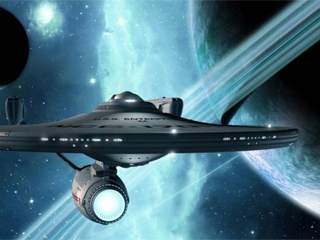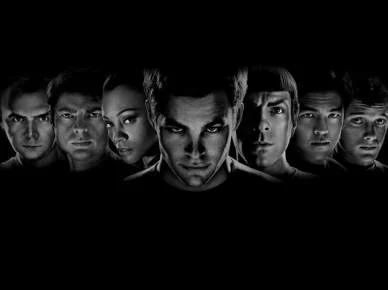A lot of fans have cried foul over J.J. Abrams’ “Star Trek,” claiming that the canon is broken, and that if the story truly picks up this line, then it is a doomed abomination of a formerly glorious triumph. I don’t agree.
You can call me less of a Star Trek fan for it, if you want, but I think, if anything, it shows the depth of my immersion into the Star Trek narrative. This is because my enjoyment of the new “Star Trek” is reliant upon my ability to fully suspend my disbelief for the original plot-line.
Here’s what I mean: I look at the original run of series and the movies as the true canon of the story universe, and this new Star Trek is therefore not a member of the Sci-fi genre.

It is instead an alternate history story. It’s as though the Star Trek future’s equivalent of Harry Turtledove is writing another famous what-if story about history, and we’re being shown the resulting movie.
I enjoyed the new Star Trek movie for the same reason that WWII buffs enjoy stories in which aliens invade during the beginning of the war, or a particular battle is changed by a time traveler, and the entire course of the conflict is altered.
It’s interesting, not because I think it’s true, but because I know it’s not true, and the differences that it shows between these ‘what-if’ events, and the ‘true’ events serve only to highlight the importance of certain developmental moments.

I see no reason why this can’t be true with alternate versions of fictional histories (We certainly tolerate it in our comic books often enough).
So, despite the lens flare, and the telekinetic serial killer Spock, I enjoyed the new movie immensely, and would not mind in the slightest if they made more movies, or even a new series based on this ‘alternate’ timeline.
I would be especially interested to see how the effects ripple further into the future, and more than that, how the other instances of time travel are affected, especially the story of “Star Trek: First Contact,” my personal favorite Star Trek movie.






